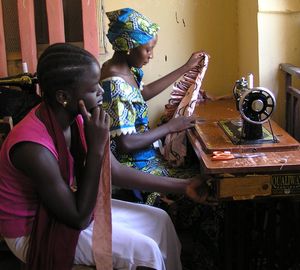Sub-grantsCOMPASS’ grassroots’ approach to improving health and education in Nigeria is no more evident than in the Project’s sub-grant component. To respond to the needs of communities and encourage improvement of social sector services, COMPASS has awarded nearly 500 sub-grants to local organizations. These range from modest, self-help grants for Parent-Teacher Associations (PTAs) to awards designed for larger community-based organizations. COMPASS has awarded hundreds of PTA sub-grants to respond to discrete, short-term opportunities. These sub-grants are used to upgrade or improve the physical learning environment in public and Islamiyya (religious) primary schools in Lagos, Kano and Nasarawa States. The sub-grant mechanism also builds the capacity of PTAs to identify and prioritize their needs and manage their resources for the general advancement of schools. Examples of PTA sub-grant projects include:
COMPASS has awarded 21 sub-grants to more well-known community-based organizations that seek to improve health and education service delivery in the five COMPASS states. In addition to receiving financial assistance for implementing activities in the community, these sub-grantees also receive direct technical assistance from COMPASS to improve their organizational management and maximize the effectiveness of their work. Examples of activities conducted by the current 16 sub-grantees include:
|
|||
